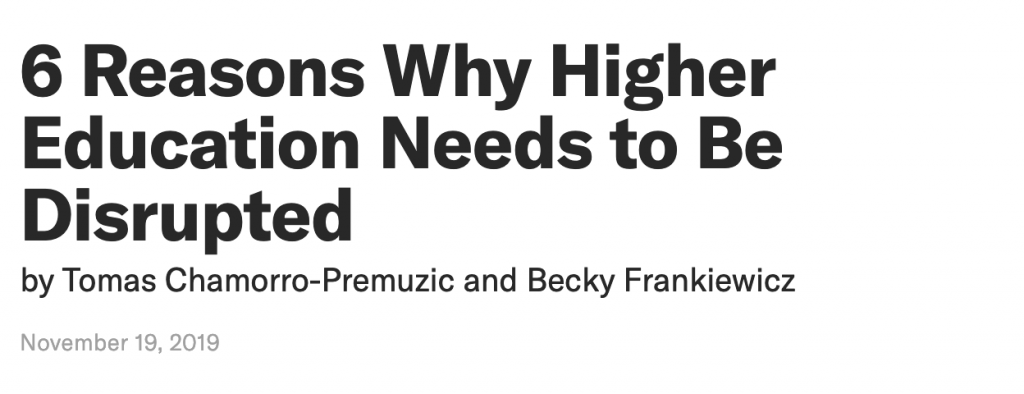Edtech is not neutral
The technologies we use are political
The selection and implementation of educational technology in our institutions is often justified in terms of “business need”, and characterised as:
“natural, necessary and largely neutral element of contemporary education” (Selwyn, 2013).
The nature of the digital more generally, and surveillance capitalism specifically (see Shoshana Zuboff, Audrey Watters and many others) means that it has become important to take a more critical view. Educational technology is not new, but newer forms are increasingly bound to a wider neoliberal agenda, including the commodification of education and increased competition between institutions and even countries (Connell, 2011).
“The rise of edtech is underpinned by ideology: Edtech is financially driven, adheres to privatisation of longstanding public structures, desires automated or prepackaged contents and processes, and envisions technology as a solution in and of itself” (Veletsianos et al, 2017).
There are also disturbing parallels between edtech and carceral technologies more generally.

We have often given more ethical consideration to how we procure teabags than we have technology.
“Whilst we have a strong culture of ethics review in our research activities, that stands in stark comparison to our operational activities, where we have failed to account for the ethical dimensions of the expansion of educational technology.” (Me, https://ammienoot.com/brain-fluff/mind-the-ethics-gap/)


“Despite the relatively prosaic nature of educational technology as a field of study, online proctoring was a contentious topic to be researching during 2020.” (Selwyn et al, 2021)
Ethics are a structural consideration in one area of education, and a risky business to engage with in another.
References
Connell, R. (2011). MyUniversity: Notes on neoliberalism and knowledge. http://www.nteu.org.au/article/MyUniversity%3A–Notes-on-neoliberalism-and-knowledge-12786